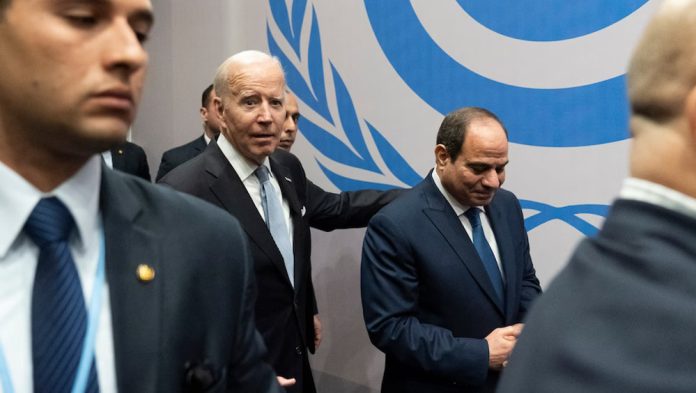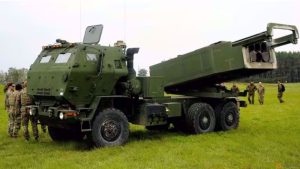According to reports, the US has made several requests for Egypt’s president, Abdel Fattah el-Sisi, to send weapons and military hardware to Ukraine.
When US Secretary of Defense Lloyd Austin asked Sisi to send weapons to Ukraine in March, the Wall Street Journal in New York reported on Friday that Austin’s request was met with a “noncommittal” response.
The American newspaper claimed that Kyiv had been requested by Washington to receive small arms, antitank missiles, air defense systems, and artillery shells from Cairo. However, Egyptian officials privately stated they had no intention of sending arms to Ukraine.
US set to give additional weapon worth of $1.03 billion to Ukraine
Senior US officials have repeatedly asked Cairo to comply with the request since Austin’s meeting with the Egyptian president, but to no avail, it was added.
Washington’s requests were turned down at a time when a cache of secret US documents revealed in April that Sisi had initially intended to covertly provide Russia with 40,000 rockets and had instructed officials to keep the agreement under wraps “to avoid problems with the West.”
According to more documents that were leaked, Egypt eventually caved to US pressure and agreed to make artillery ammunition for Ukraine instead of delivering weapons to Russia.
Egypt keeps a close relationship with Moscow and imports the majority of its wheat from Russia while trying to maintain neutrality in the conflict between Russia and Ukraine.
Egypt has long been a close ally of the US in the Middle East and receives more than $1 billion in annual US military aid, despite having a long-standing diplomatic and military relationship with Russia.
Western nations, led by the United States, have been imposing sanctions against Russia since the conflict broke out last February while also supplying Ukraine with tens of billions of dollars’ worth of sophisticated weapons. Moscow claims that these actions will only exacerbate the current situation and prolong hostilities.
Moscow claims it started the conflict to “de-Nazify” its neighbor and to protect the pro-Russian population in the eastern Ukrainian regions of Luhansk and Donetsk from Kyiv’s repression.
Russia claims that the West’s anti-Russian agendas, including its eagerness for Ukraine to join NATO and, as a result, the Western military alliance’s expansion all the way to Russia’s borders, forced Moscow to start the war against Kyiv.
Back in June, the Kremlin issued a warning, stating that any delivery of long-range missiles to Kyiv by its Western backers would result in yet another round of “spring tension” in the ongoing conflict.














